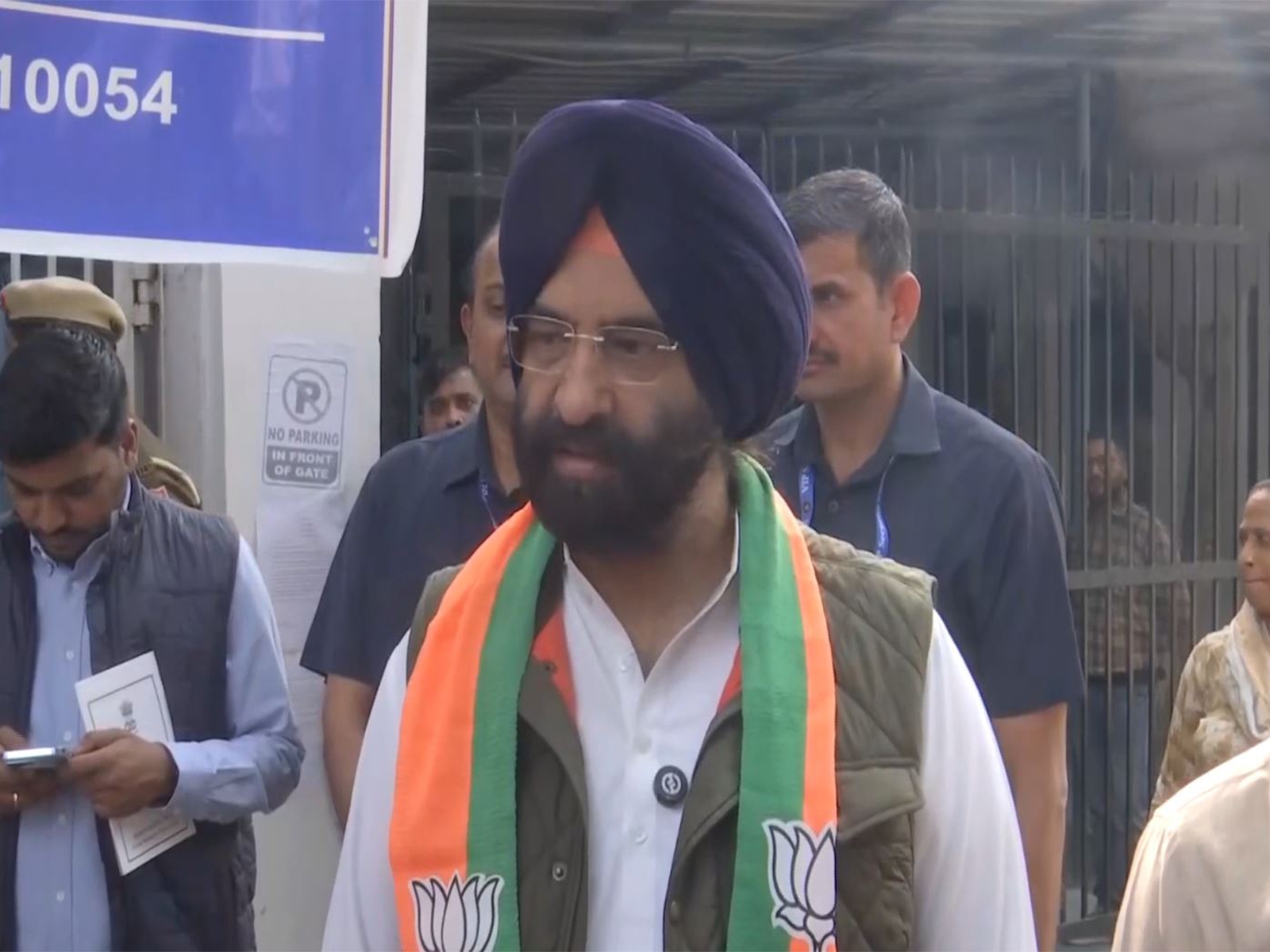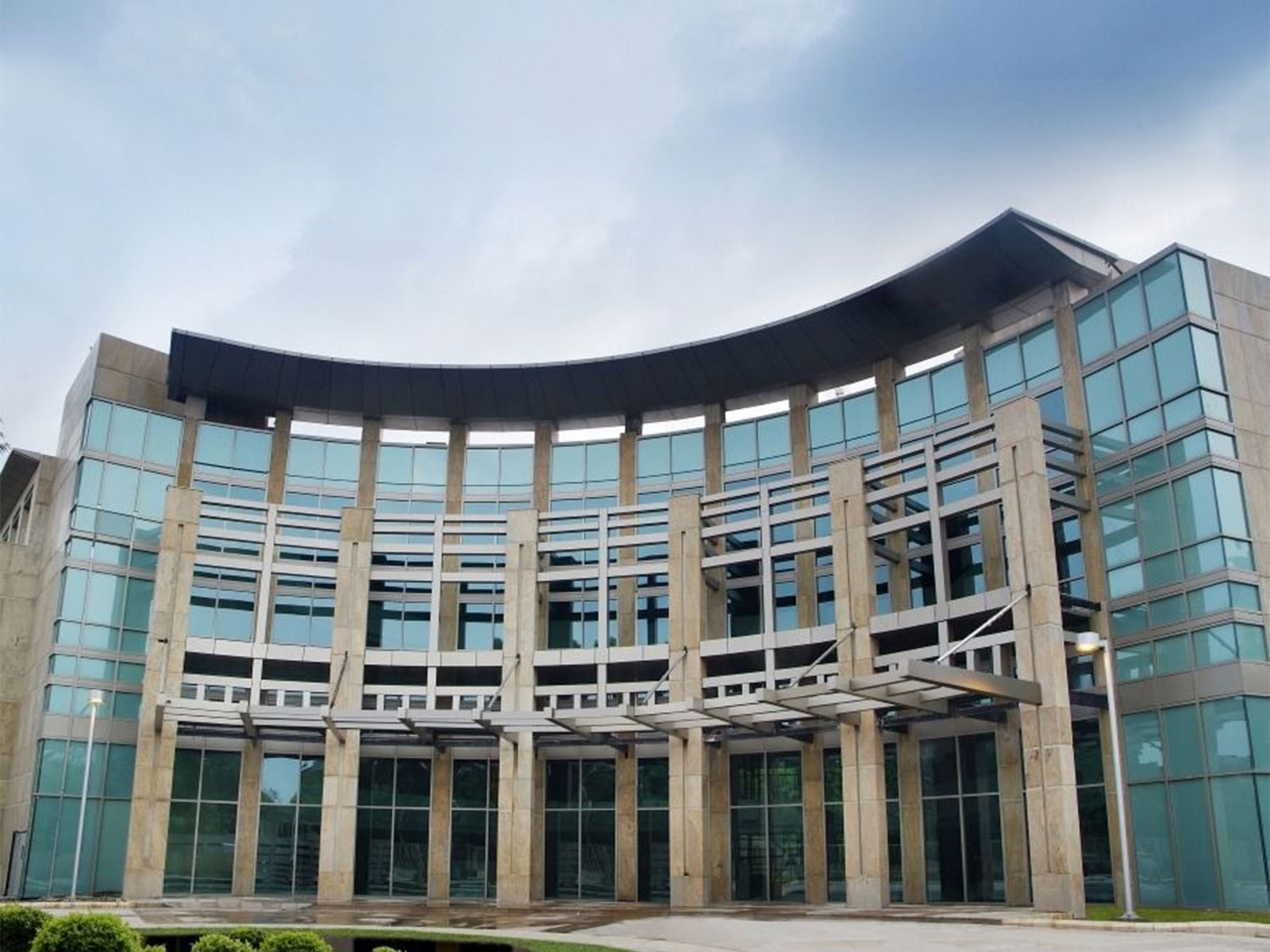
As Kashmir Valley demands azaadi from New Delhi, political groups and the civil society in Jammu and Ladakh are renewing old demand to be split from the Valley and be given a separate political identity - albeit it being largely opposed by Muslim populations in the regions.
In their meeting with the all-party delegation on Monday, the Chamber of Commerce and Industries (CCI) of Jammu supported the demand for a separate Jammu state, as voiced a day earlier by the independent legislator from Udhampur, Pawan Gupta.
"We want a peaceful and constitutional settlement of the Kashmir issue. Though our prime demand is trade incentives and compensation for losses borne by Jammu traders, we will not be left with any other option but to bat for a separate Jammu if the Centre fails to address the issue," CCI president Rakesh Gupta told the delegation.
'Why should we suffer?'
The CCI presented a memorandum to the delegation, highlighting the need for delinking Jammu from the troubles in Kashmir.
"We are not in favour of the trifurcation but if the administration can't control the situation and deliver, what choice are the Jammu people left with, and why should people of Ladakh and Jammu, who have always stood by the nation, suffer," a part of the memorandum read.
The memorandum also called for doing away with Article 370 as "it has been used as a weapon to harass the state subjects in J&K rather than protect and safeguard their interests."
Gupta, who boycotted the delegation, was more blunt: "It is time to separate festering sore of Kashmir from the healthy body of Jammu province and Ladakh."
"Let the turmoil in Kashmir valley be dealt with by New Delhi within a small geographical region without sacrificing the interests of Jammu and Ladakh."
Voicing the concerns
The demand for statehood for Jammu has been publicly voiced by the political and civil society actors in Jammu after a long time.
However, it remains a demand whose most powerful political champion, the Sangh Parivar, has long since abandoned it.
In its 2002 Kurukshetra meet, Rashtriya Swayamsevak Sangh adopted a resolution in support of a separate state for Jammu. It also floated the Jammu State Morcha in the same year to take the demand forward.
Subsequently, RSS all but gave up on it, deterred by the detrimental fallout of such a demand in a sensitive and conflict-ridden state like J&K.
And by the time, the 2002 Assembly polls drew around, Sangh asked the people to support BJP's Jammu-specific agenda. The change of heart is believed to have happened at the urging of the BJP patriarch LK Advani.
Following this, the demand for Jammu's statehood also lost much of its political resonance among the people of the province.
A long history
The demand itself has a long political pedigree, being raised by Bharatiya Jana Sangh leader Balraj Madhok on 1 November, 1947, just six days after J&K's accession to India.
Around the same time, Kushak Bakola Rinpoche, the head Lama in Ladakh, urged Prime Minister Jawaharlal Nehru to govern the province directly from Delhi.
The two demands went through their highs and lows over the subsequent decades and it was only in the early '90s that the movements gathered some popular support, more in reaction to the separatist violence that engulfed the Kashmir Valley.
Opposition voices
The fresh call for statehood has run up against a defiant opposition from the Muslim groups.
A day-long meeting of the recently formed Pir-Panchal Unity Forum (PPUF) was held in Jammu on Sunday which, in one of its resolutions made it "eloquently and abundantly clear", that the hilly terrains of Greater Pir Panchal comprising Kishtwar, Doda, Ramban, Reasi, Rajouri and Poonch are parts of a historically, geographically, culturally and politically distinct region "that will not accept to be mixed up with any other region whatsoever".
The participants condemned certain forces "who have surfaced yet again" to demand the division of J&K on communal lines.
"Those pitching for Jammu statehood must know what their Jammu state would look like," PPUF statement said. "Such nefarious designs must and would face a stiff resistance".
Those who spoke at the meeting included Muhammad Aslam Goni, the former advocate general of the state.
And what does Ladakh want?
On the other hand, Thupstan Chewang, a BJP member of Parliament from Ladakh, recently wrote to the Centre calling for a Union Territory (UT) status for the province.
"Ladakh was never a part of Kashmir. Nor was Jammu. We were artificially brought together by Dogra rulers," Thusptan Chewang told Catch.
"Ladakh is also ethnically and culturally different from the other two regions".
However, Chewang acknowledged that a majority of the people in the province's Kargil district were not in favour of the UT status for Ladakh and wanted to remain a part of Kashmir.
"However, we are trying to bring them on board. We have scheduled a meeting with the Kargili organisations in October. We hope to persuade them to join," Chewang sathid, highlighting that a majority of Kargili Muslims belong to the Shiite sect of Islam and therefore are not necessarily invested in any truck with the Sunni-majority Valley.
In response, an eight-member group from Kargil that called on the all-party delegation in Srinagar on Monday rejected the UT status for Ladakh division.
The leaders demanded strengthening of the Article 370 and sought equal rights for the people of Ladakh.
The delegation comprised the members of Imam Khomeini Memorial Trust, Islamia School Kargil, Ahle Sunnat Wal Jamaat Kargil, Ladakh Hill Development Council Kargil and Opposition Congress leaders.
The Buddhist leaders from Zanaskar, Tsering Angdus and Skalzang Wangyal weren't part of the delegation.
Let's not divide and rule
In Kashmir, separatists have always opposed the trifurcation of the state. The demand for statehood for Jammu is always seen as propped up by the Centre to create a parallel political discourse to the Azadi movement in Kashmir. And its abandonment by RSS "as a recognition of Jammu's significance in the containment of Kashmir's Azadi campaign".
Ironically, one of the biggest proponent for Jammu statehood was the separatist turned mainstream leader Sajad Lone. In 2007, his Kashmir settlement document Achievable Nationhood called for "opt out option" for Jammu.
However, this is for the first time that the demand for a statehood for Jammu and UT status for Ladakh is facing a prompt and stiff opposition from the Muslim groups within, complicating the scenario further in an already very complex state.
There is little chance that these demands could assume a serious political dimension in the given circumstances, but they do once again highlight the problem that is Jammu and Kashmir.
Though the current unrest in Kashmir is of a political nature, it would take an incident or two for it to shade into a communally charged strife, reinforcing the demand for Jammu's statehood and Ladakh's UT status.
Edited by Jhinuk Sen
Also read: Kashmir: why Hurriyat may not agree to talks even if Modi govt does
Also read: All party delegation visit faces sweeping boycott in Kashmir
Also read: Kashmir: Hurriyat & civil society refuse to meet all-party delegation
Also read: All party meet on Kashmir: all fury and confusion signifying nothing
First published: 7 September 2016, 12:28 IST

![BJP's Kapil Mishra recreates Shankar Mahadevan’s ‘Breathless’ song to highlight Delhi pollution [WATCH] BJP's Kapil Mishra recreates Shankar Mahadevan’s ‘Breathless’ song to highlight Delhi pollution [WATCH]](https://images.catchnews.com/upload/2022/11/03/kapil-mishra_240884_300x172.png)

![Anupam Kher shares pictures of his toned body on 67th birthday [MUST SEE] Anupam Kher shares pictures of his toned body on 67th birthday [MUST SEE]](https://images.catchnews.com/upload/2022/03/07/Anupam_kher_231145_300x172.jpg)






